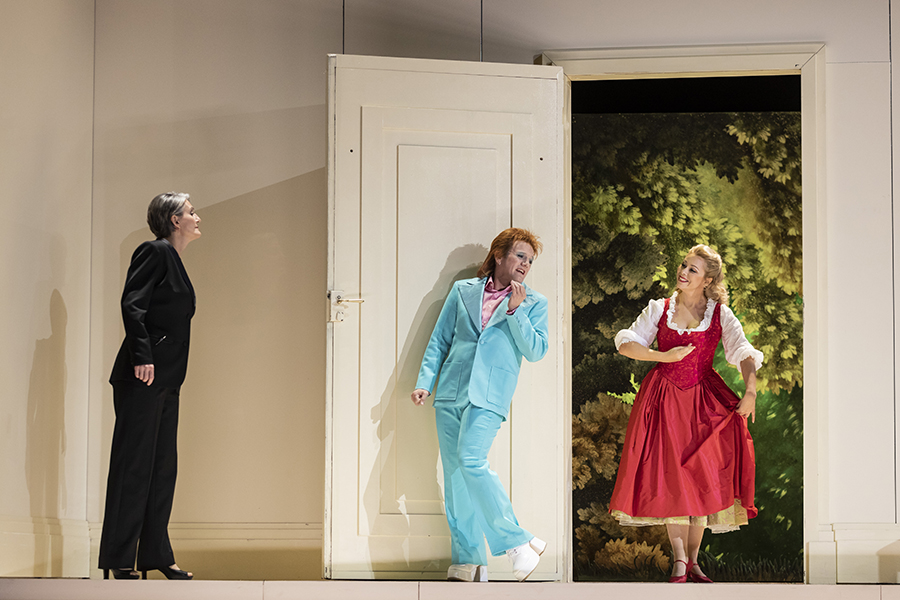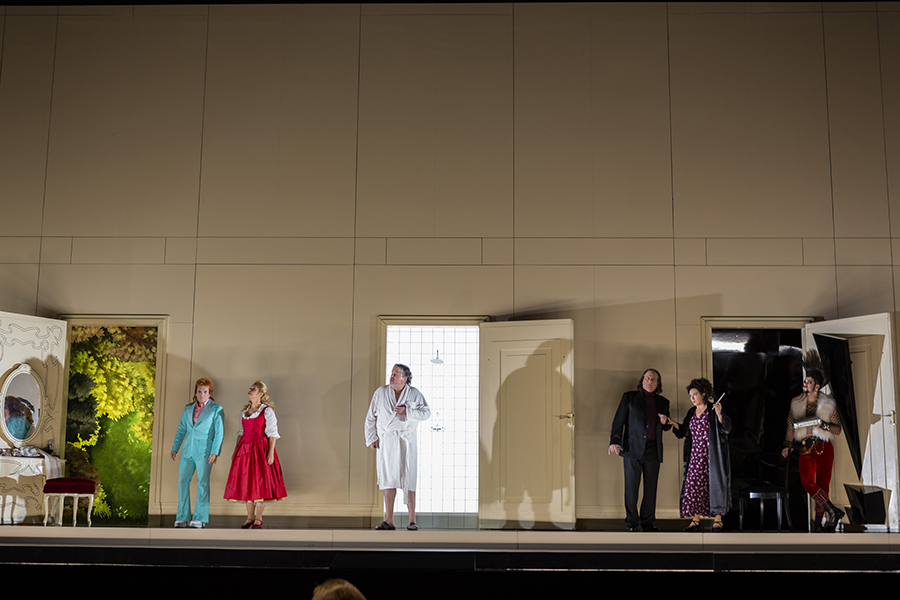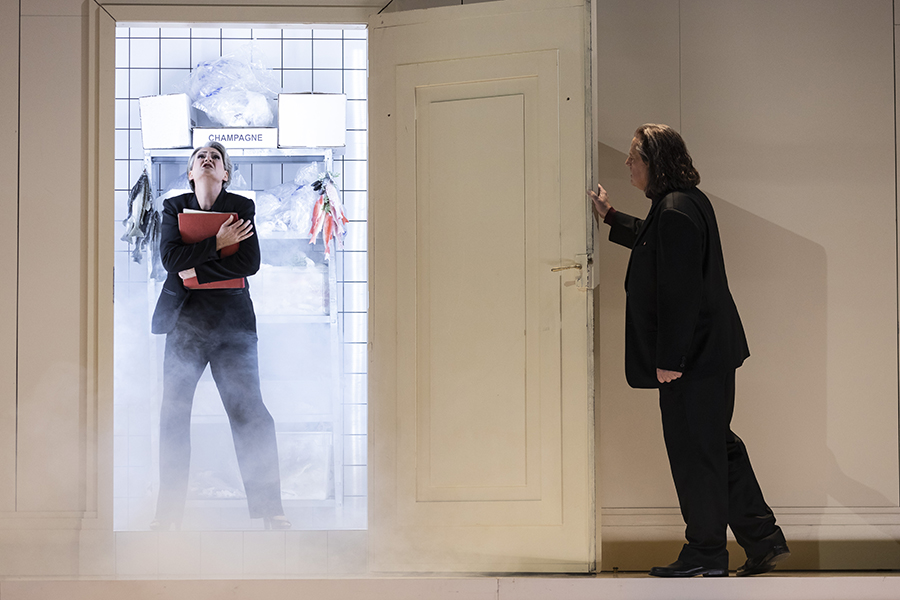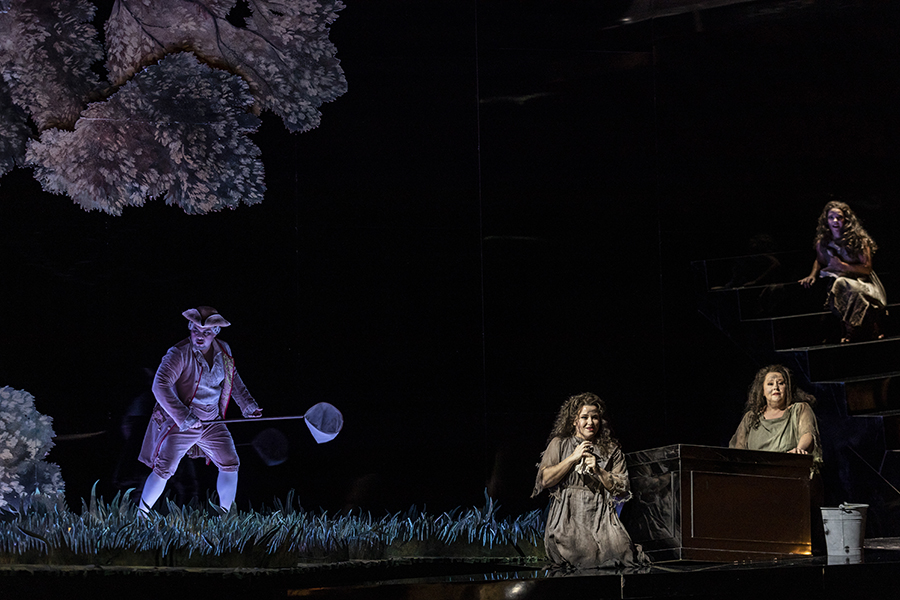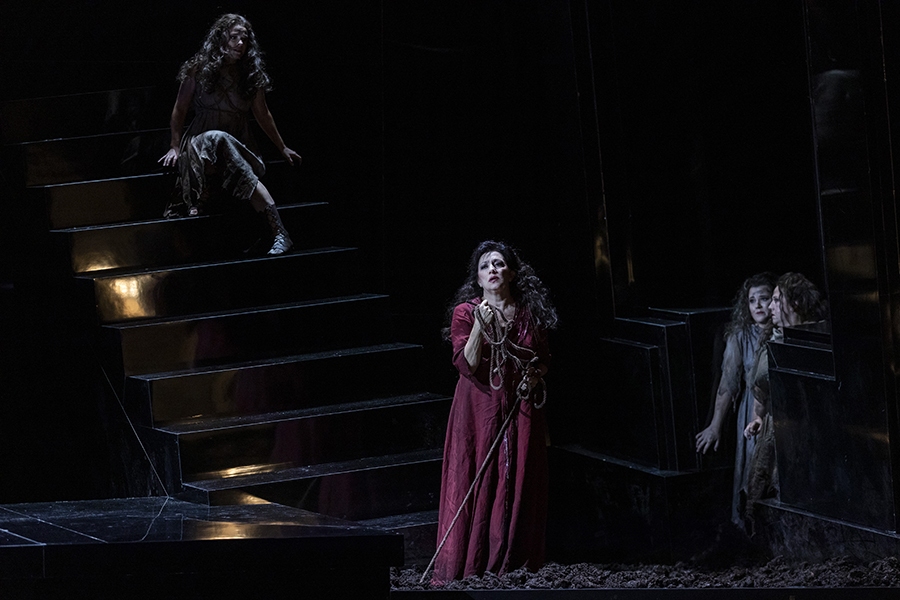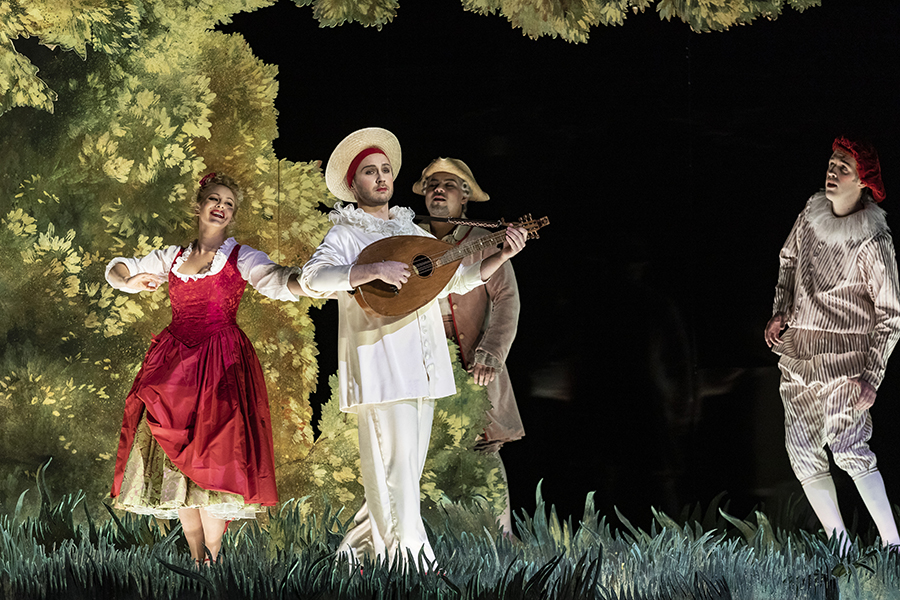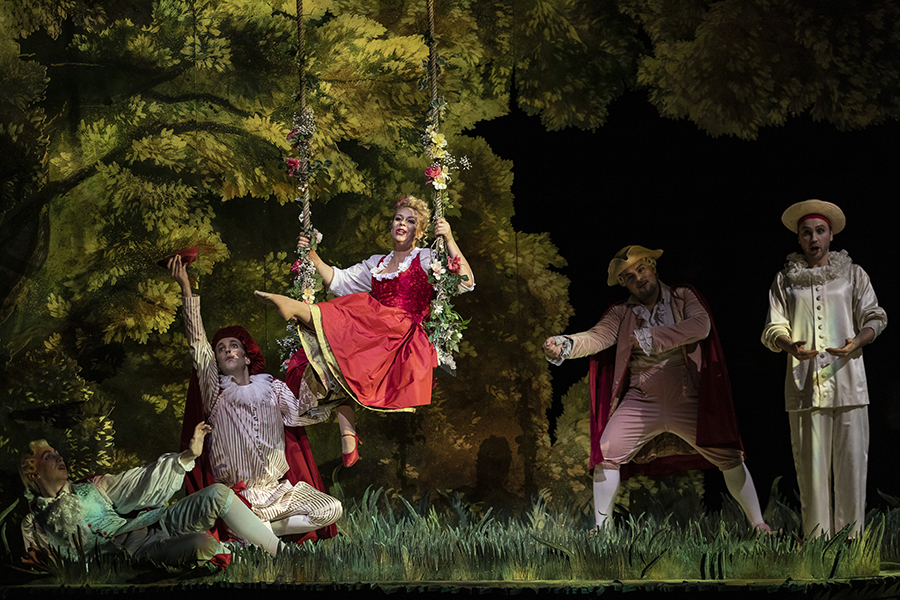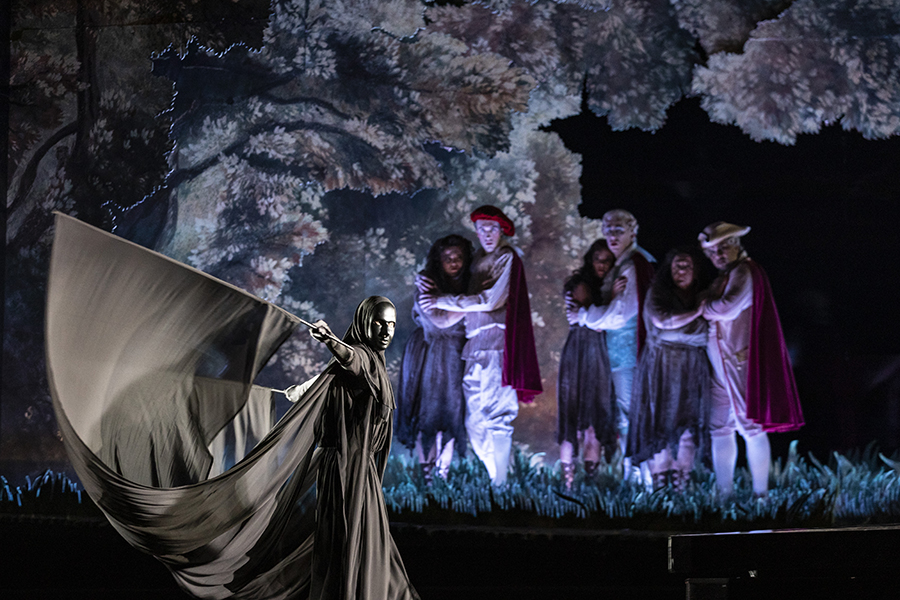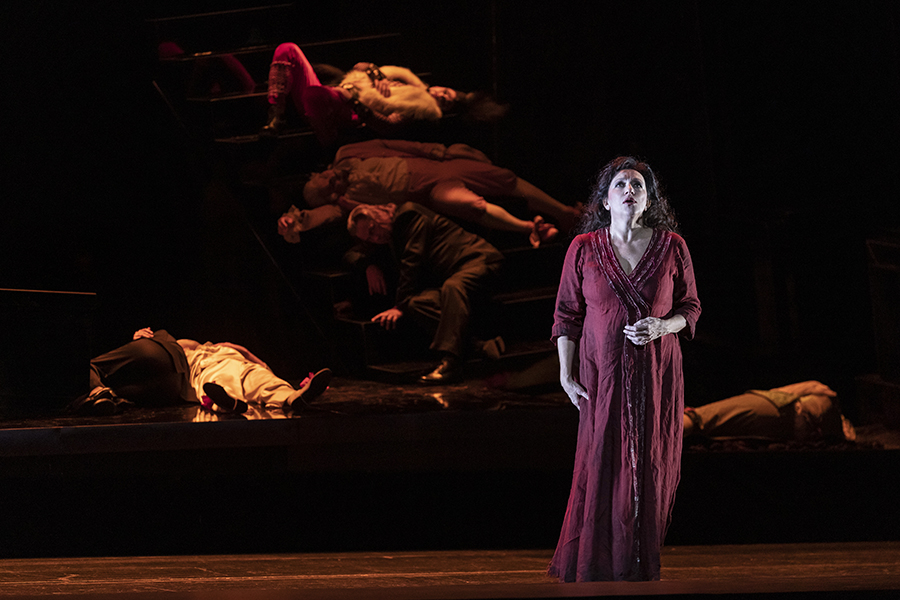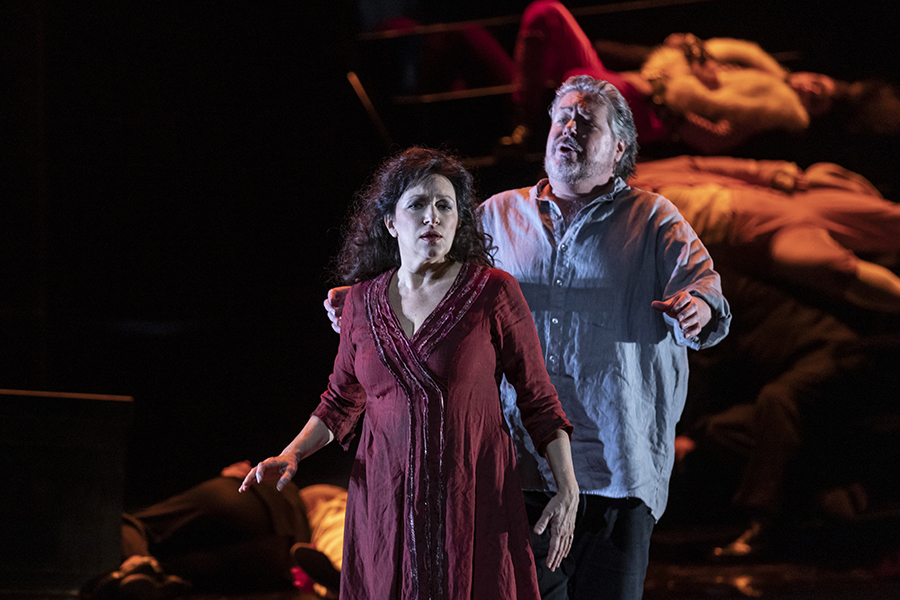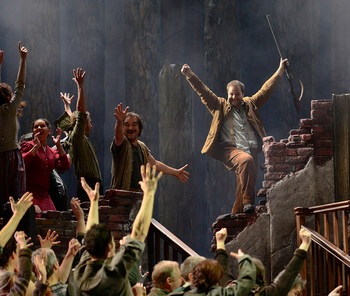Richard Strauss
Premiere 2. December 2018
Performed in German with German and English surtitles
Piece-Info
A rich man employs a young composer to write an opera for his party: The result is Ariadne on Naxos. But because this tragic opera about Ariadne, deserted by her former lover Theseus, is not entertaining enough for the host, he also invites a troupe of burlesque comedians to strut their stuff alongside the tragedians. This outrage for the composer presents itself as an opportunity: The grief of the abandoned can be contrasted with the joie de vivre of the comedienne Zerbinetta. In his staging of the work, David Hermann juxtaposes the world of Greek tragedy with the frippery of French rococo. »Ariadne auf Naxos«, which premiered in 1916, is an opera about opera, about loyalty and change, as well as the transformative power of love.
Prologue
An opera, »Ariadne on Naxos«, by a young composer, is to be performed at the home of a rich man. The patron announces, through his majordomo, that a further comedy group will provide entertainment after the serious opera. The majordomo responds to the protest of the music master, the composer’s mentor, by referring to the right of the paying principle. The composer thinks that performing a comedy alongside his work is a betrayal of art and the opera singers turn their noses up at the performing artists. Their leader Zerbinetta is, meanwhile, worried about how she will get the audience to laugh again after the serious opera. The majordomo arrives with further instructions: the opera and the comedy should not be performed after one another but, instead, at the same time. The composer no longer wants to perform his work yet his music master reminds him about his much-needed pay. A dance master advises that if Zerbinetta’s improvisation art is used and the score is shortened, nothing need stand in the way of a successful performance. The composer once again vehemently contradicts Zerbinetta’s perspective of the myth of Ariadne – yet both became closer in their thoughts on love, loyalty and one’s own self. When the spectacle begins, the composer wishes he could turn to stone.
Opera
The Cretan king’s daughter Ariadne has saved the life of Athenian Theseus by helping him kill the Minotour and escape the labyrinth of her father Minos. Instead of taking her with him to Athens and marrying her, Theseus leaves her on the island of Naxos. Frozen in grief and accompanied by three nymphs, Ariadne waits for death as a life without her beloved Theseus doesn’t seem worth living. Zerbinetta and her companions Harlekin, Brighella, Scaramuccio and Truffaldin try to cheer Ariadne up with singing and dancing yet she ignores the lively troupe. Zerbinetta subsequently explains her conviction to Ariadne that continuous change and transformation determine the nature of love. Ariadne does not want to hear this and Zerbinetta then chooses, from the four suitors pursuing her, Harlekin. The three nymphs announce the arrival of Bacchus on the island. Young Bacchus, the son of Zeus and Semele, is still under the impression of his first experience with a woman, the sorceress Circe whose transformative power has rebounded off him. He also thinks Ariadne is a dangerous sorceress at first who conjures men into animals. Ariadne, meanwhile, thinks Bacchus is Hermes, the messenger of death, for whom she has waited for, for so long. Whilst both recognise each other, they transform: Bacchus finally becomes a god and Ariadne is able to free herself from the love for Theseus.
Gallery
Ariadne auf Naxos
